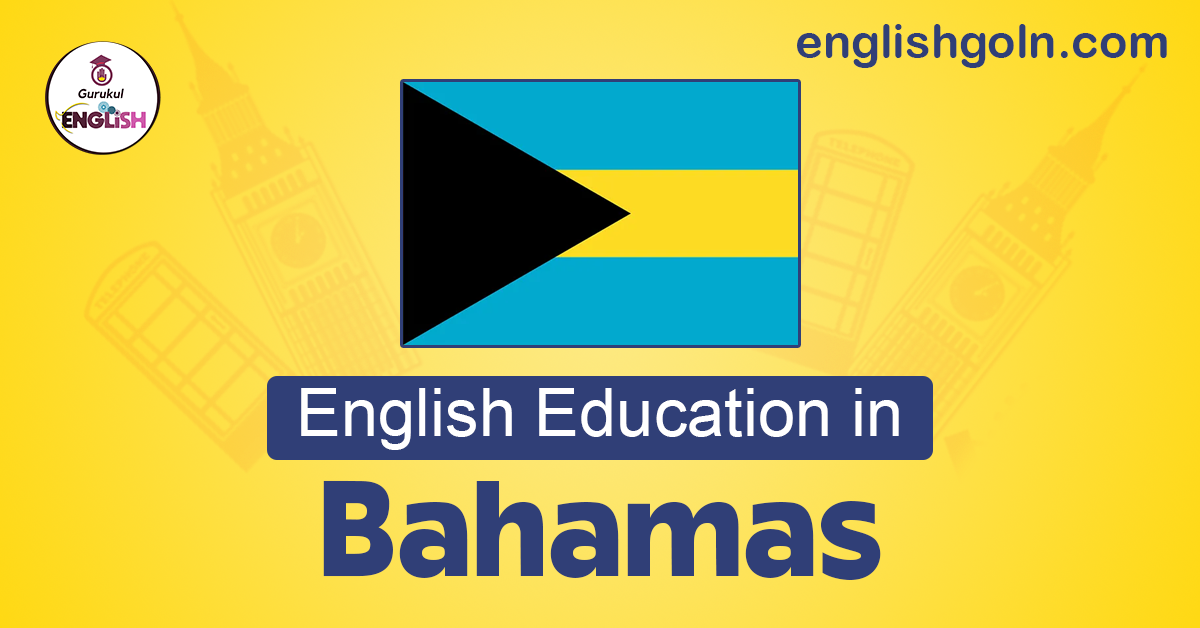The Bahamas, an archipelago of over 700 islands in the Caribbean region, is known for its stunning beaches, vibrant culture, and warm hospitality. As an English-speaking country, English education is the cornerstone of the Bahamian educational system. With a strong emphasis on language proficiency and literacy, English education plays a vital role in shaping the nation’s identity, fostering communication, and connecting the diverse communities that make up this multilingual country.
English Education in The Bahamas

Historical Context of English Education in The Bahamas
The Bahamas was a British colony until gaining independence in 1973. Consequently, the English language, as inherited from its colonial past, became the official language of the country. English was adopted as the medium of instruction in schools and remains the primary language used for governance, media, and daily communication.
The colonial history also left an indelible impact on the educational system. Early education in The Bahamas was largely provided by religious missions and the colonial administration, with a focus on basic literacy and numeracy. English education played a central role in imparting cultural and societal values while reinforcing the influence of the British colonial regime.
English Education Today: A Multilingual Landscape
English education in The Bahamas has evolved significantly since independence, reflecting the nation’s growing multilingualism and cultural diversity. While English remains the official language and primary medium of instruction, the educational landscape now embraces multilingualism and recognizes the importance of Bahamian Creole as part of the country’s linguistic heritage.
1. Primary and Secondary Education
In the primary and secondary education levels, English is taught as the core language. Students learn to read, write, and communicate effectively in English, developing essential language skills for academic and social success. English education is integrated into various subjects, ensuring students can express themselves confidently across disciplines.
As part of a broader approach to language education, Bahamian Creole (also known as Bahamian Dialect) is acknowledged as an integral aspect of the Bahamian cultural identity. It is widely spoken among locals and has influenced the colloquial expressions and cultural traditions of the nation. However, the use of Bahamian Creole is not formally taught in schools, and English remains the primary language of instruction.
2. Higher Education and Tertiary Institutions
English education continues to play a critical role in higher education and tertiary institutions in The Bahamas. English proficiency is essential for admission to colleges and universities, and most programs are conducted in English. Tertiary institutions focus on developing advanced language skills, critical thinking, and communication abilities necessary for academic and professional success.
3. The Role of Standardized Testing
Standardized testing in English is an integral part of the Bahamian education system. Students are assessed through national examinations, such as the Bahamas General Certificate of Secondary Education (BGCSE) and the Bahamas Junior Certificate (BJC). These exams evaluate students’ language proficiency, reading comprehension, and writing skills in English.
Challenges in English Education
Despite the emphasis on English education, several challenges persist in The Bahamas:
- Dialectal Variation: The diverse dialectal variations of Bahamian Creole can create linguistic challenges in the classroom. Students may face difficulties in code-switching between Bahamian Creole and Standard English, affecting their language proficiency.
- Rural Disparities: Access to quality English education remains a concern, particularly in rural and remote areas of the archipelago. Limited resources and infrastructure can hinder effective language instruction and academic opportunities for students.
- Teacher Training: Adequate teacher training and professional development in language instruction are crucial for enhancing the quality of English education. Training programs should address language acquisition strategies, cultural sensitivity, and differentiated instruction to cater to diverse student needs.
- Literacy Levels: Despite advancements, literacy levels in The Bahamas still require improvement. Promoting a culture of reading, early literacy intervention programs, and community engagement can contribute to raising literacy rates.
Promoting Multilingualism and Language Diversity
The Bahamas recognizes the significance of preserving its linguistic heritage while promoting multilingualism. Several initiatives are in place to foster language diversity:
- Bahamian Creole Appreciation: Cultural events, festivals, and educational programs celebrate Bahamian Creole as an essential aspect of the nation’s identity. Recognizing and appreciating this linguistic heritage fosters a sense of pride and cultural identity among Bahamians.
- English Immersion Programs: Immersion programs and language camps aim to enhance students’ English language skills by creating an environment where they are continually exposed to and encouraged to use English.
- Teacher Training and Professional Development: Ensuring that teachers are well-equipped to handle linguistic diversity in the classroom is crucial. Professional development workshops focus on language acquisition techniques and strategies to support students with varied language backgrounds.
- Parent and Community Involvement: Involving parents and the broader community in language and literacy initiatives reinforces the importance of education and language proficiency.
Conclusion
English education in The Bahamas is more than just a medium of instruction; it plays a significant role in shaping the nation’s identity, cultural heritage, and multilingual landscape. Emphasizing English proficiency while acknowledging the linguistic diversity of Bahamian Creole fosters a rich and inclusive educational environment.
As the country continues to evolve, English education must adapt to meet the needs of a changing society, promoting multilingualism, and embracing language diversity. By nurturing language skills, fostering a love for learning, and celebrating its linguistic heritage, The Bahamas can continue to build a strong foundation for its future generations, empowering them to communicate confidently on the global stage while preserving their unique cultural identity.
